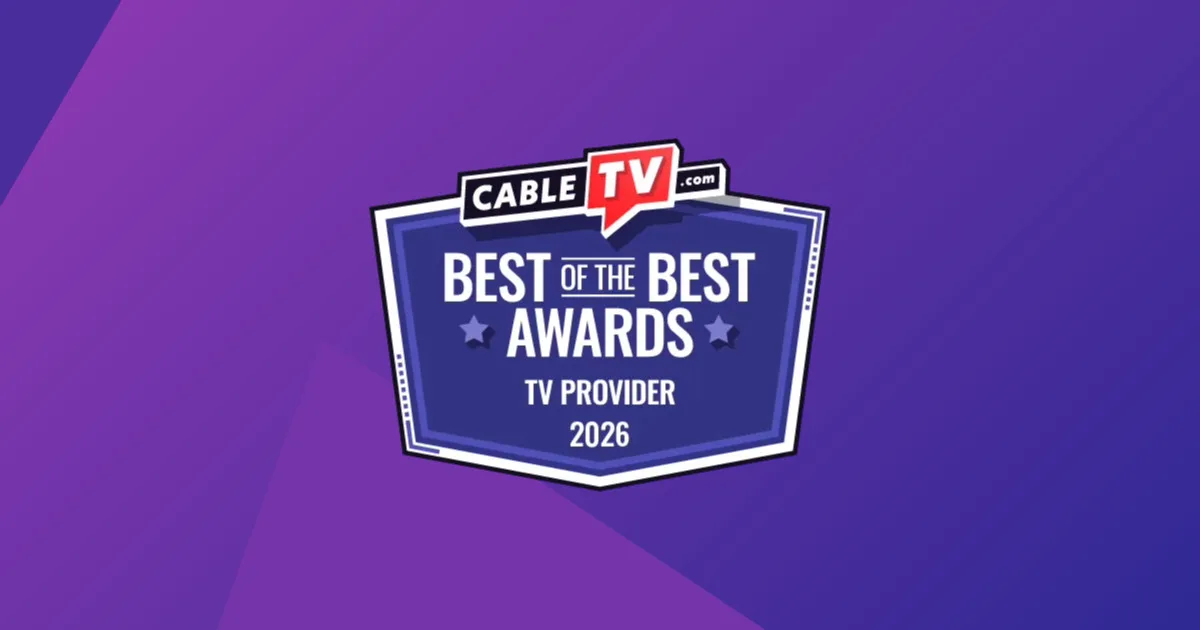What do you do if you want to keep your cable subscription but don’t want to pay big bucks for it? Or maybe you’re just looking for the best TV and internet deals around.
Fortunately, there are plenty of ways to lower your cable TV bill without sacrificing your favorite reality shows. From supplementing with other services to negotiating like a pro, read on to find out how to lower your cable bill.
Enter your zip code below to find a cable package with just the right features for you.
1. Drop to a cheaper cable package
We’ll start with the simplest tip: every couple months, take a few minutes and evaluate your usage. You might not need the fastest internet available or all those premium channels.
In particular, packages with large channel counts can add a lot to your bill. If you find you’re paying for features you don’t want or need anymore, drop them. Otherwise, they’re a waste of money.
2. Supplement your cable package with other services
If you don’t want to sacrifice your favorite shows, consider dropping to an internet-only package and getting a live TV streaming service or another lower-cost alternative.
Many cable providers offer internet-only packages, as well. You could sign up for one to cover your internet service and then subscribe to a streaming service like Sling TV, Hulu, or Netflix to get the programming you want.
Most of these streaming services cost less than cable TV, so subscribing to one of them, as well as one of your current cable provider’s internet-only packages, will be less than a premium cable package.
3. Bundle TV and internet services
Bundling services is a great way to save money, and it’s often more convenient as well. Why have two or three separate bills when you can just have the one?
But if you happen to have services at competing providers, this can also be a great opportunity to negotiate—many sales reps will offer discounted packages in an effort to get you to go all-in with their company.
By bundling TV and internet, you might save anywhere between $10 to $40 per month. To find out what bundles are available in your area, enter your zip code below.
4. Sign a contract
While we normally consider a contract or service agreement to be a negative thing, the reality is many providers will offer discounted rates to customers willing to sign a one- or two-year agreement.
That’s because they are guaranteed to make a certain amount of money from you under a contract, thanks to Early Termination Fees (ETFs). Xfinity is one example of a provider that offers both contract and no-contract pricing—and yes, the contract pricing is less expensive.
If you expect to stick with one cable company for a while, it might be worth signing a contract to save some money. Typically, the difference between contract and no-contract pricing is around $10 per month, so it can really add up.
5. Shop around for a better cable provider or package
This applies to both competing providers and your current provider’s own offerings.
Cable providers frequently offer special TV and internet deals for new subscribers, and many times these include either more value for the money or cheaper prices. Switching providers to take advantage of one of these deals could easily make your monthly payment more manageable.
Keeping up with current TV and internet deals also gives you leverage during negotiations with your provider. It might be worth calling and asking why a loyal customer such as yourself can’t get the better rates you’ve seen offered to new customers.
To see what packages are available in your area, enter your zip code below.
6. Ask for a discount from your cable provider
Yes, it really could be that simple. Nearly every provider is willing to talk pricing, especially if you’re nearing the end of a service agreement and could potentially jump ship. Just call and ask what the rep can do for you. You might be surprised.
This does depend heavily on the service rep you get when you call. To maximize your chances, be extra nice. A little patience goes a long way. And if your first rep won’t offer any discounts, be prepared to call back until you get a rep willing to work with you
7. Negotiate with your cable provider
If simply asking for better cable TV and internet deals fails you, try negotiating. You might be surprised at how many providers are willing to haggle on prices, especially if you point out how much cheaper a competitor is (see number five).
It also doesn’t hurt to do a little sleuthing beforehand to see what sort of TV and internet deals are going on with the competition—many providers will price match. Here are tips for specific providers:
Remember that even if the sales rep isn’t budging on the price of your service, don’t give up. They might at least throw in some extra premium channels or a bump in your internet speed.
8. Threaten to leave your cable provider
If asking nicely and negotiating don’t work, pull out the big guns. Many sales reps will panic when you say you’re leaving, and that’s when they start pulling out deal after deal to entice you to stay.
And there’s a little trick with this one that providers don’t want you to know: if you call in to complain about pricing, lower your current plan, or cancel service, many providers will offer you packages that are much cheaper than what you’ll find online.
These are plans that aren’t necessarily advertised but are available to representatives in order to retain customers, and they can be really good. We’ve heard of people saving $10 or $20 a month with these “secret” packages.
9. Switch cable providers
Finally, if your current provider just isn’t giving you what you need, there’s no shame in switching. This is the beauty of a no-contract package—you can switch whenever you want.
And remember the tricks above when you call to shop for a new provider. Particularly if you mention your current provider on the call with a new one, the rep might be willing to sweeten the deal.
If you end up needing to switch, you can enter your zip code below to see what providers are in your area:
How to lower my cable bill FAQ
Why is my cable bill so high?
Your cable bill can be high if you've added premium channel packs or if your provider has recently increased prices. Most standard cable TV packages should cost around $40 to $60 per month. If you're paying too much monthly, here's how to lower your cable bill—consider calling your cable company to see if you qualify for lower rates, or jump to a streaming service.
How much is an average cable bill per month?
Cable TV subscriptions in the United States average approximately $85 a month. That is just the cost of the TV package. Bundling cable TV service with internet and telephone plans can affect the price.
What is the best alternative to cable?
Instead of subscribing to cable TV, many people have chosen to go with a streaming TV package. Becoming a cord-cutter—saying goodbye to a cable or satellite TV plan—offers various options. Sling TV, Philo, and YouTube TV are a few of the options. The advantage of a streaming TV plan can include lower prices, no cumbersome equipment, and access to numerous channels (including local channels), as well as on-demand programming. Our Best TV Streaming Services article offers information on plans, pricing, and features.
What can I say to lower my cable bill?
Once you have determined priorities (channels, features, budget), there are different points to bring up with a customer service representative that might allow you to negotiate a lower price for your cable bill:
- If you have a history of on-time payments, find out if that can be used to get a lower price for your plan.
- If you are getting new service or upgrading your current subscription, find out if free activation or free installation is available.
- Ask about perks like free channel additions or free subscriptions to streaming providers like Netflix and Hulu—while these might not lower your bill, they increase the value of your package.
- If you are bundling your cable TV with an internet plan, ask if there's a lower internet speed that's cheaper than what you're currently using and if that will still give you the speed needed for a quality viewing experience.
- Let the provider know you have seen better offers from competitors and ask if they can match or better that price in order to keep you as a loyal customer.





